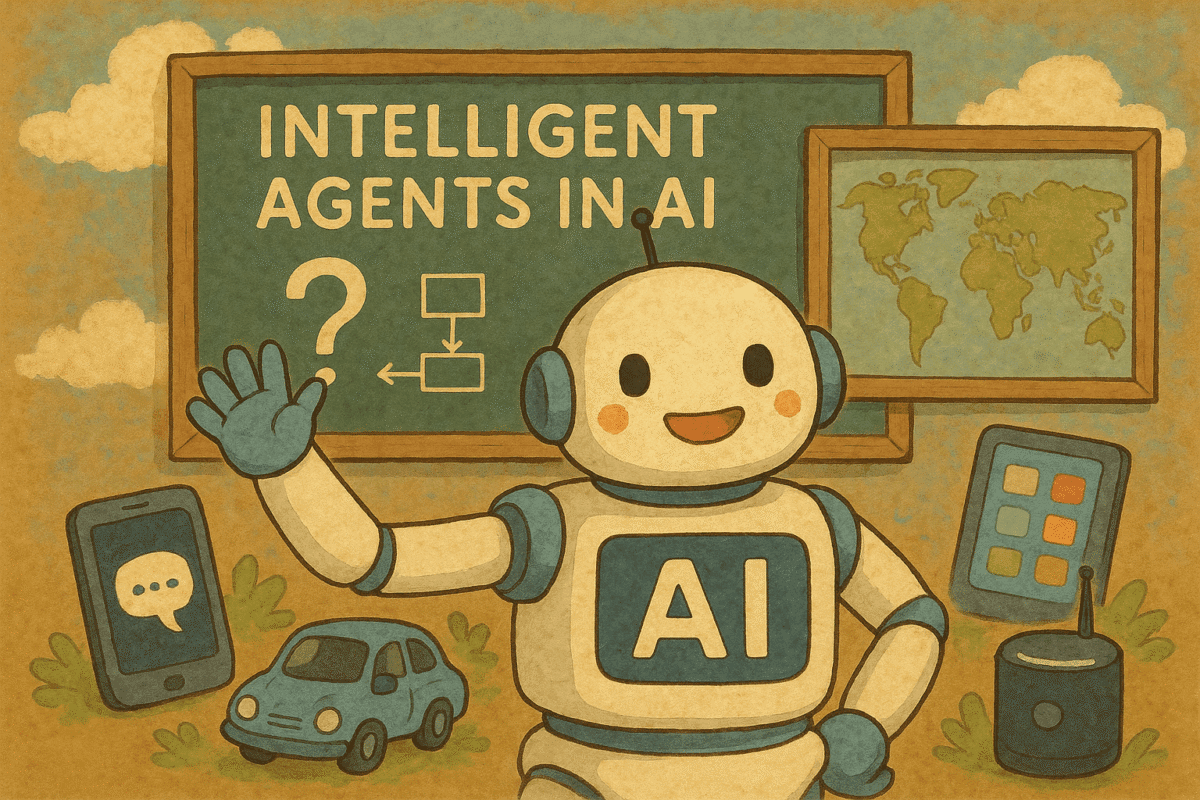Intelligent agents in AI
Intelligent Agents in AI: What They Are and Why They Matter in 2025
Introduction : Intelligent Agents in AI
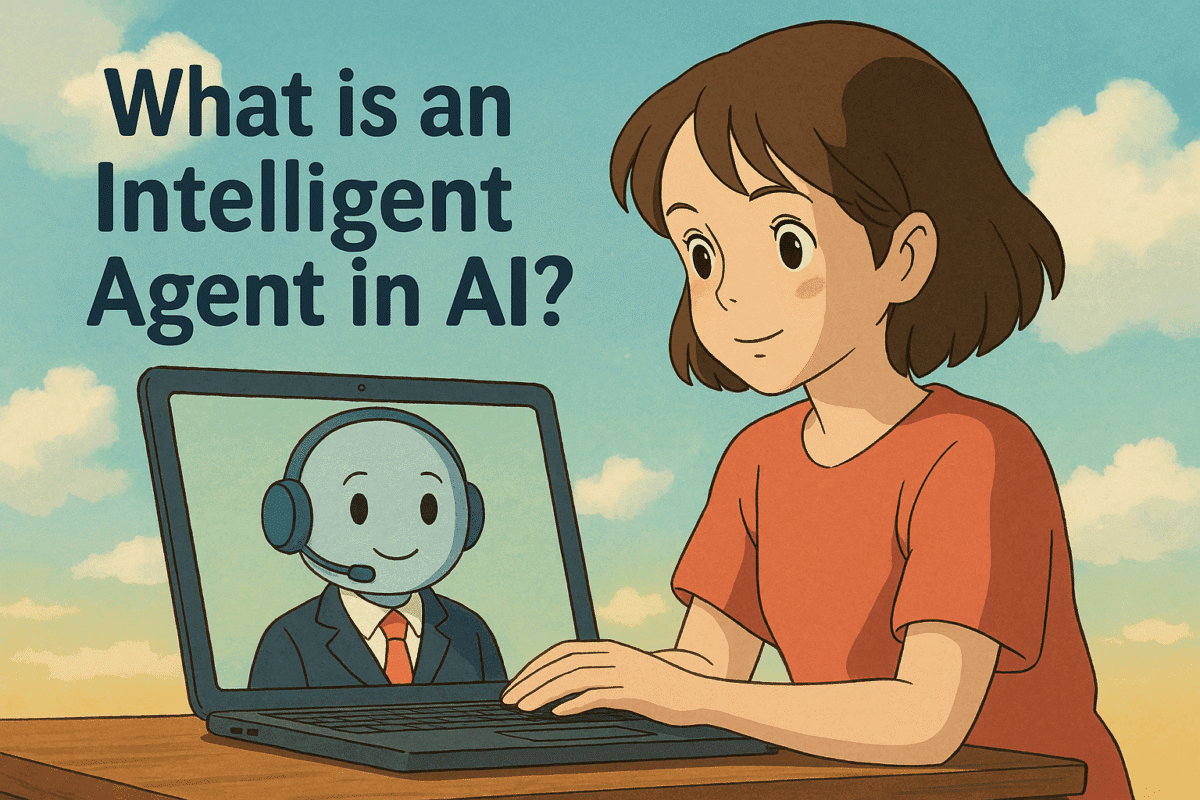
Artificial Intelligence (AI) is evolving at lightning speed, and one term that’s quietly becoming a game-changer is “intelligent agents in AI.” But what does it really mean? And why is everyone in tech talking about it?
In simple terms, intelligent agents are autonomous decision-makers. From the chatbot that answers your bank queries to self-driving cars that choose optimal routes—they’re all powered by these agents. They’re trending because the world is shifting toward automation, personalization, and smarter systems that think and act like humans.
This blog breaks it all down: what they are, their types, how they function, and how they’re impacting real lives. Get ready to empower your understanding of AI like never before!
What is an Intelligent Agent in AI?
If we had to define intelligent agent in AI, it would be this: an intelligent agent is a system that perceives its environment and takes actions that maximize its chance of success at a goal.
Imagine it as a highly focused intern—always watching, learning, and executing tasks based on what it observes. Your smart speaker? That’s an intelligent agent. It listens to your voice (perceives), processes the request (decides), and responds (acts).
These agents are the thinking part behind smart technology—and they’re here to stay.
Types of Intelligent Agents in AI
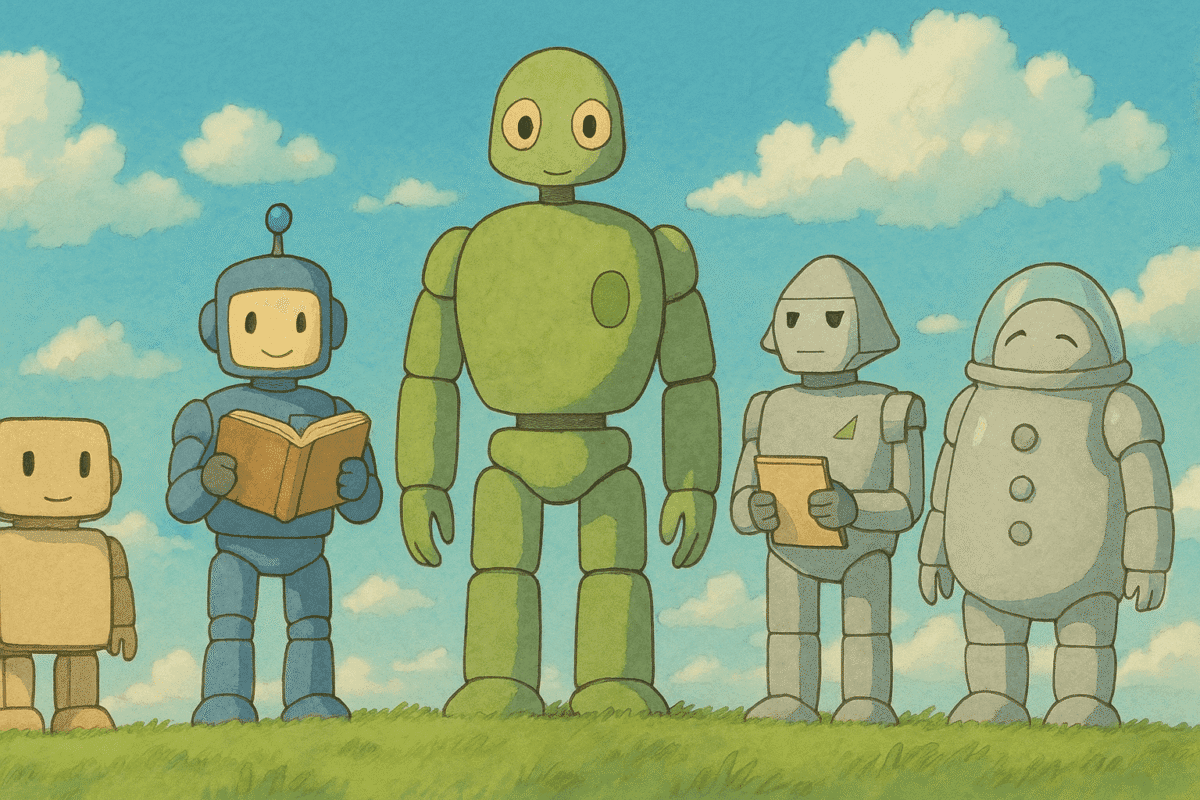
When we talk about the types of intelligent agents in AI, we’re diving into how these systems behave and make decisions.
Simple Reflex Agents
These work on the “condition-action” rule. Example: a basic vacuum robot that changes direction when it bumps into a wall.
Model-Based Reflex Agents
These are more advanced. They remember past events. Your smart fridge reminding you that you’re low on milk? That’s this guy in action.
Goal-Based Agents
These aim to achieve specific outcomes. Like GPS recalculating the best route to your destination when traffic builds up.
Utility-Based Agents
These not only aim for the goal but choose the most beneficial way. A trading bot optimizing for maximum returns is a great example.
Learning Agents
These evolve. They improve through experience. AI diagnostic tools in hospitals get better with each patient they analyze.
Some of these even qualify as typical intelligent agents in AI due to how commonly they are deployed across industries.
Architecture & Structure of Intelligent Agents
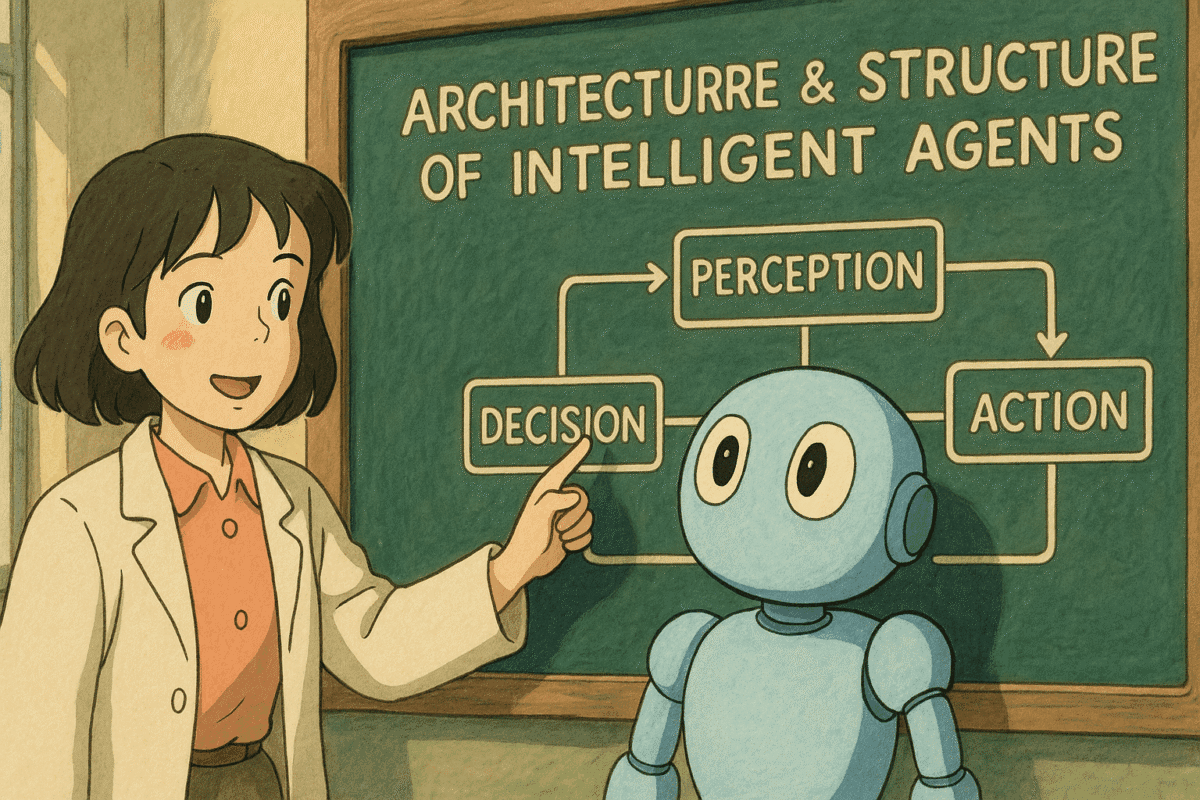
The architecture of an intelligent agent in AI is like a thought process. Here’s a simplified flow:
- Perceive: Gather information via sensors
- Decide: Evaluate options based on a model or rule set
- Act: Perform the selected action using actuators
This loop—sense, think, act—is the structure of intelligent agent in AI.
🧪 Real-life Example: Your smart thermostat detects it’s too cold (sense), checks your preferred temp settings (think), and turns on the heater (act). ❄️→✨→🔥
Real-World Use Cases of AI Intelligent Agents
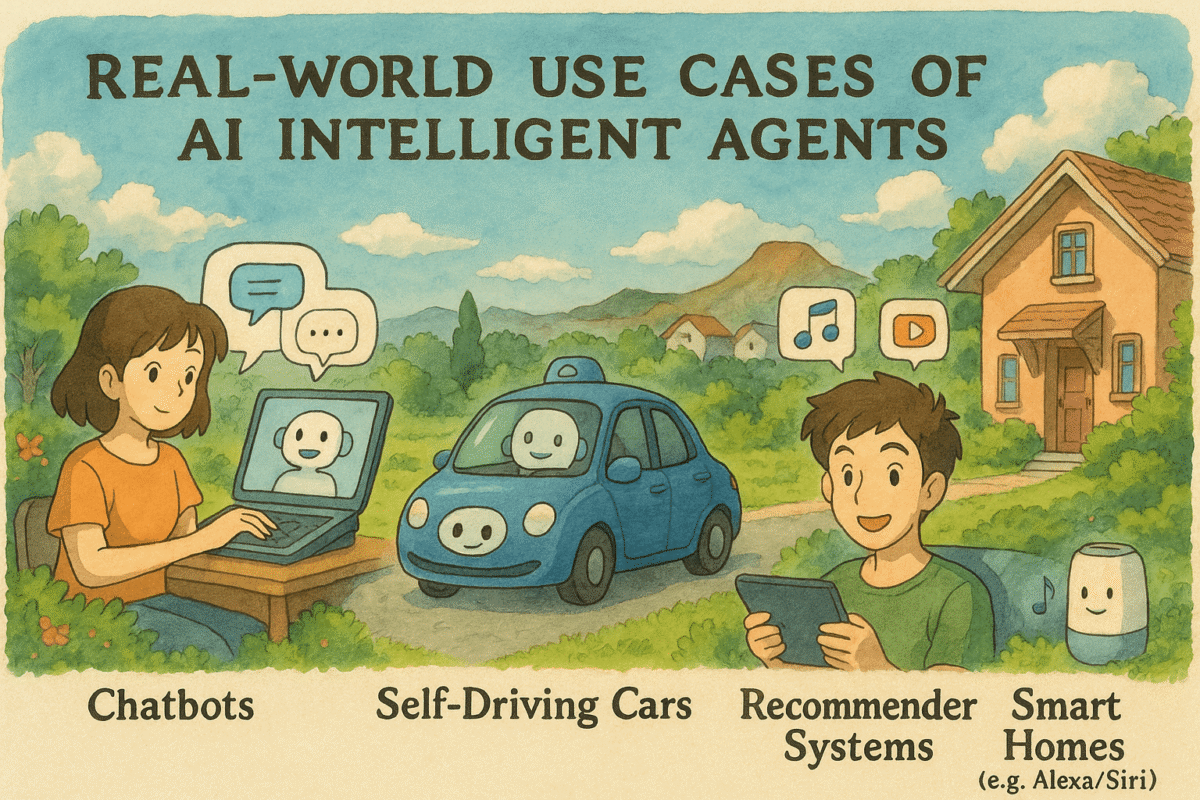
Here’s where intelligent agents prove their real value:
- Chatbots: Helpdesks and customer service bots that understand context and respond accordingly.
- Self-Driving Cars: Tesla, Waymo—they use a mix of agents to navigate roads.
- Recommender Systems: Netflix, YouTube, Amazon—agents suggest what you’ll like based on past behavior.
- Smart Homes: Alexa and Siri aren’t just voices—they’re agents responding to your environment and commands.
Fun Fact: By 2026, over 80% of consumer interactions will be handled by AI-powered agents.
Difference Between AI System and Intelligent Agents
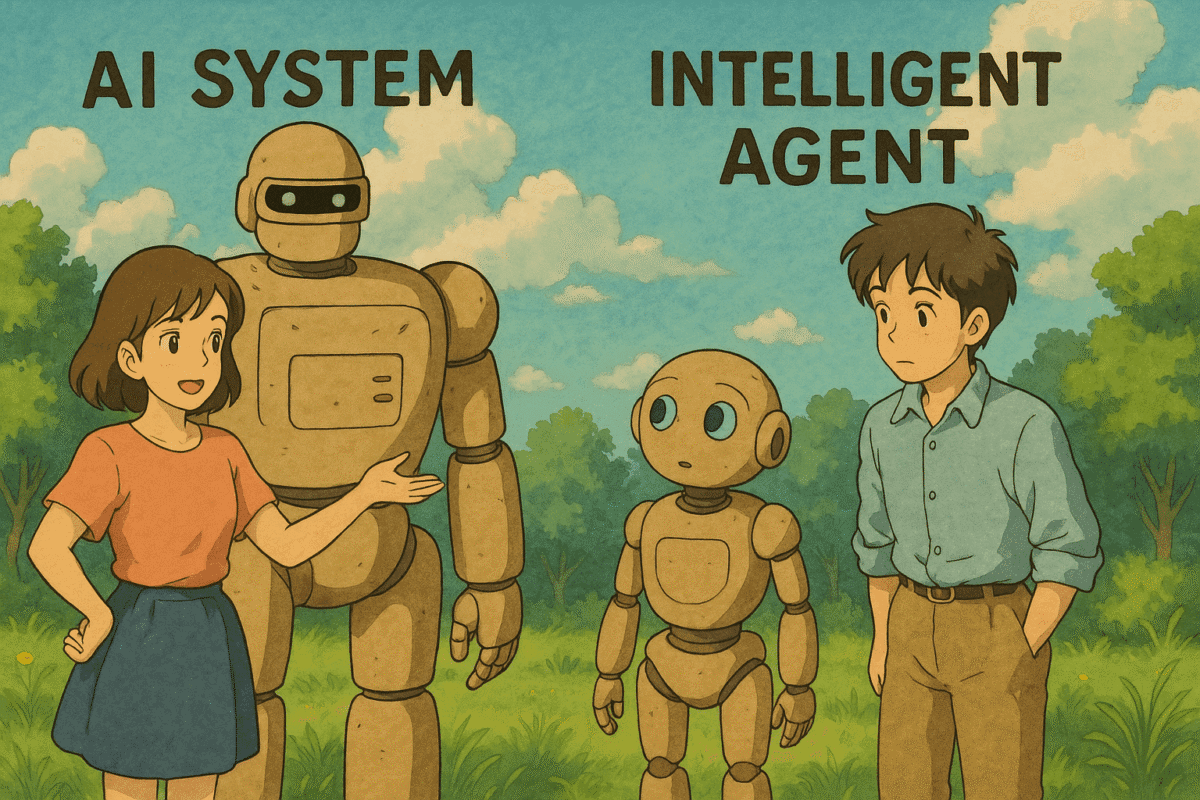
An AI system refers to any application or tool that exhibits intelligence. But not all AI systems are agents.
An intelligent agent in AI is defined by its ability to perceive, decide, and act autonomously. Think of the difference like this:
- AI System: A calculator app that uses AI to solve equations faster.
- Intelligent Agent: A personal assistant app that listens, schedules, and even reschedules based on your routine.
One is static and responsive; the other is dynamic and proactive.
Why Intelligent Agents Matter in 2025
The year 2025 marks a crucial turning point in AI adoption. Businesses, governments, and individuals are relying more than ever on AI-driven systems to solve complex problems—from climate change to customer service. At the heart of these systems are intelligent agents, driving innovation and efficiency.
Why now? Because we’re experiencing an explosion of data and computing power. Agents can now make decisions in real-time, learn on the go, and operate in environments once thought too complex for machines.
Here are three reasons why they’re vital in 2025:
- Hyper-personalization: Agents customize user experiences in apps, shopping, learning, and healthcare like never before.
- Workforce augmentation: They take on routine tasks, freeing humans for creative, strategic work.
- Decision-making support: In sectors like finance, medicine, and logistics, intelligent agents assist professionals in making faster, data-driven choices.
Stat Spotlight: According to a 2024 Gartner report, 60% of enterprises deploying AI tools cited intelligent agents as the most impactful implementation.
In short, intelligent agents are not just support tools—they’re becoming central to how we live and work.
Challenges and Ethical Concerns
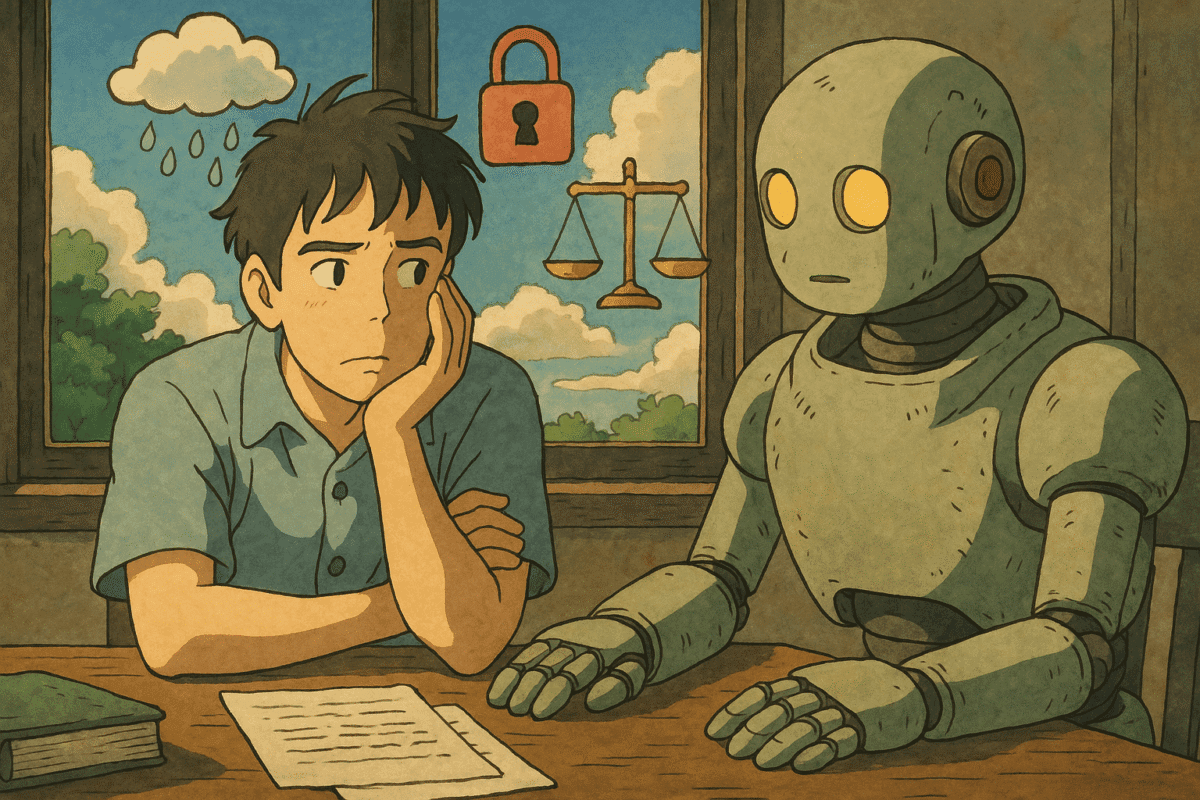
With great power comes great responsibility. Here are some hurdles:
- Bias: Agents may replicate data biases if not trained correctly.
- Security: Malicious agents could be exploited in cyber attacks.
- Autonomy: Over-reliance on automated decision-making can backfire without human oversight.
It’s essential that as AI evolves, so does our understanding of ethics and responsibility.
Conclusion
So, what have we learned? Intelligent agents in AI are more than tech jargon. They’re the backbone of a smarter, faster, and more connected digital world.
From healthcare to your living room, these agents are making decisions that once needed human brains. Understanding their role helps us stay informed and prepared for a future ruled by AI-enhanced interactions

